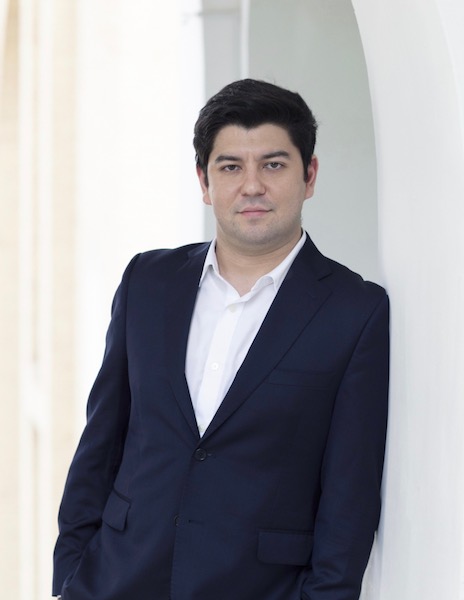Abduraimov’s memorable Mussorgsky wins out over distractions

There are so many good young musicians on the contemporary classical music scene that at times one runs into the perverse problem of abundance—how to differentiate one type of excellence from another, how to describe musical personalities that are all exciting and accomplished in individual ways.
That was part of the experience of hearing pianist Behzod Abduraimov play at Carnegie Hall Tuesday night. In familiar repertoire—Chopin, Debussy, and Mussorgsky—what was it that Abduraimov left impressed in the memory?
This was a concert about how a musician plays the piano, and Abduraimov’s sheer technical skill at the keyboard was a pleasure in itself and impressive in every way. His pianism was superior: always clear and in control no matter the pace or dynamic level, with unerring articulation of notes and phrases no matter the velocity,
As was his musicianship, meaning how he laid out the notes to make them more than just a reading of the score. Chopin’s Preludes, Op. 28, first on the program, are meat and potatoes for that, showing what a pianist can do with his hands and what an artist can do with their sensibilities.
Abduraimov was musical to the last degree here. There’s nothing he couldn’t do with Chopin’s challenge to other pianists (“Try and do this, my friend”).
The question was what he thought about Chopin. It was clear the music was to him a rich resource; his rubato was both superb and tasteful, taking just enough time from one beat to deliver the next with greater satisfaction, all free from exaggeration and bathos. His phrasing emphasized the simplicity of Chopin’s melodies, as in the A minor Prelude or the “Raindrop” Prelude in D-Flat Major, and this combination of tension in time and tasteful elegance in space was lovely throughout. That Abduraimov did not leave a clear image of his personality in this music was not a detriment but it meant that one thought more of Chopin than the pianist.
This was the same with Debussy’s Children’s Corner, after intermission—his thinking was solely about the piano, not about what meaning might be discovered in the music. The sensation that came off the keyboard while Abduraimov played “Doctor Gradus ad Parnassum,” and especially “The Snow is Dancing,” was dazzling, like a waterfall illuminated by lightning. The pianist was examining how the notes fit together, and showing the audience he thought they did so marvelously. The sound was beautiful and smooth yet full of details. Still, one could not find Abduraimov within; it was great playing that did not stand out in any particular.
That all finally changed with his stupendous performance of Pictures at an Exhibition.
From the start, this was special with a feeling of distinction. Abduraimov didn’t just play with clarity and power, but with fervor and personal commitment. Abduraimov’s Pictures was packed with meaning.
The “Promenades” were full of pride and dignity, “Gnomus” had an edge like a serrated knife. “Samuel Goldenberg and Schmuyle” had an invigorating sense of agitation, “Con mortuis In lingua mortua” was searching, sounding like Abduraimov was looking for the path out of a dark place. Throughout the piece, the pianist showed he wasn’t satisfied with just making the music sound great, but in digging into it to see what might be underneath. He never abandoned the fine musical judgement he had been displaying earlier, yet he was always inside the music, pushing it to its extremes without while always working with what Mussorgsky had given. This was individual and exhilarating pianism.
The one unfortunate element of the evening was the appalling rudeness of several audience members. During the Preludes, someone’s hearing device constantly whistled. Between works and after intermission a few dozen people got back to their seats late, leaving Abduraimov to wait for them before he started. During Pictures, from “Bydlo” on, someone was snoring loudly. Other audience members dropped the usual items on the floor; phones, keys, bowling balls. The coughing was constant, as was the parade of emergency sirens running back and forth outside on 57th street.
That Abduraimov seemed unruffled by this omnipresent obbligato noise helped one keep concentration on the music. And the audience did deliver enough sincere applause to bring him back for three encores: Rachmaninoff’s arrangement of Tchaikovsky’s Lullaby; “Mercutio” from Ten Pieces from Romeo and Juliet by Prokofiev; and Liszt’s “La Campanella” Etude. All of these were fine, and the Liszt was exciting, but all were anticlimatic after the memorable Pictures.
Mitsuko Uchida plays Beethoven at Carnegie Hall, 8 p.m. April 7. carnegiehall.org